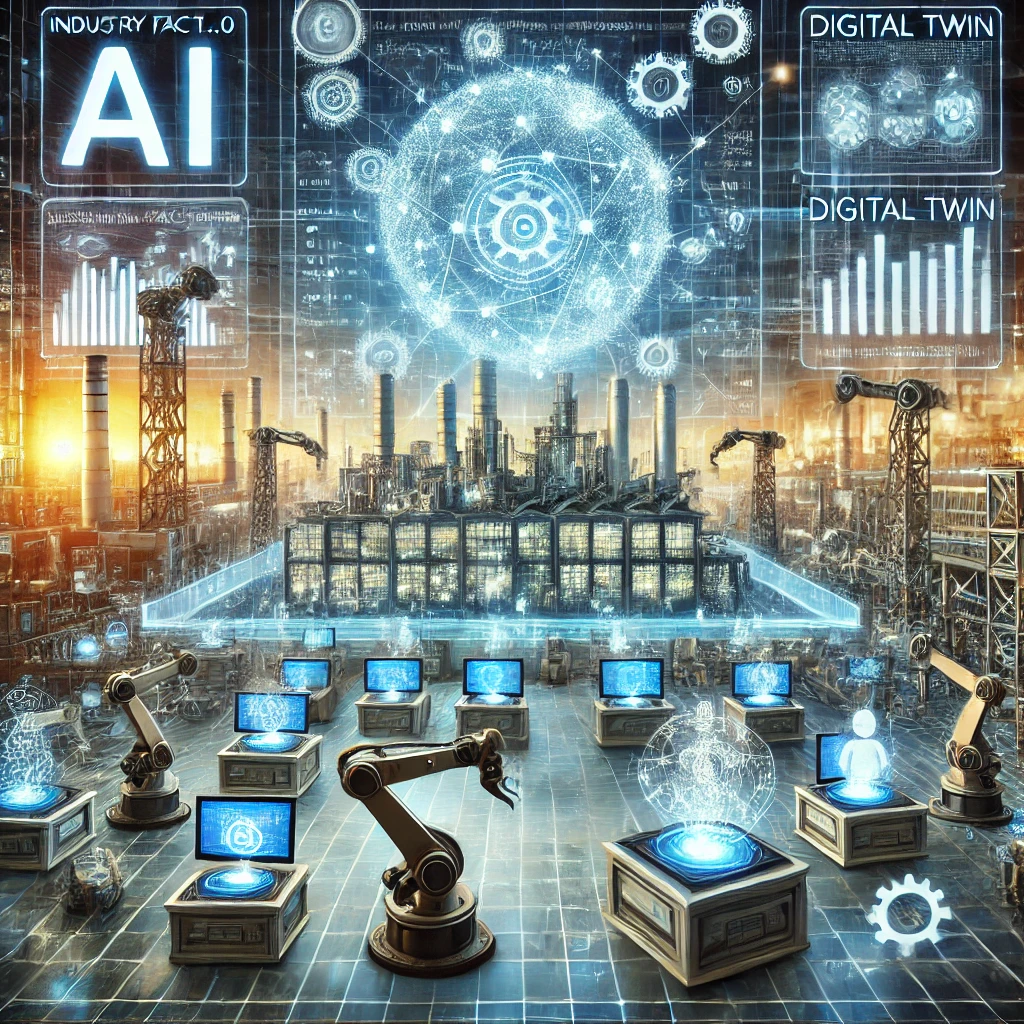Industry 4.0’s future depends on stronger AI and digital twin standardization - Here’s why
Industry 4.0 is revolutionizing factory automation, predictive maintenance, and industrial AI applications. However, without stronger global regulations, businesses face challenges like data security risks, lack of interoperability, and conflicting regional standards.

Industry 4.0 is transforming manufacturing by integrating Artificial Intelligence (AI), Digital Twins, and automation technologies. However, a lack of standardized regulations is slowing down adoption. A new study, "Status and Future Prospects of the Standardization Framework Industry 4.0: A European Perspective," published in Service Oriented, Holonic and Multi-agent Manufacturing Systems for Industry of the Future, examines how global standards can improve interoperability, efficiency, and security in Industry 4.0.
Conducted by researchers from Fraunhofer Institute for Manufacturing Engineering and Automation, the German Commission for Electrotechnical, Electronic, and Information Technologies, and the Technical University of Applied Sciences Augsburg, the study highlights the urgent need for unified industry standards that ensure regulatory compliance, cybersecurity, and seamless AI integration.
Why standardization is crucial for AI and digital twins in smart manufacturing
Industry 4.0 is revolutionizing factory automation, predictive maintenance, and industrial AI applications. However, without stronger global regulations, businesses face challenges like data security risks, lack of interoperability, and conflicting regional standards.
Standardization is essential because it:
- Ensures Interoperability – Standardized AI and Digital Twin systems allow seamless integration between different manufacturers and industrial platforms.
- Improves Cybersecurity – Standardized security protocols reduce vulnerabilities in industrial IoT (IIoT) networks.
- Boosts Efficiency – Automation becomes more scalable and cost-effective when AI and Digital Twin technologies follow a common regulatory framework.
- Supports Legal Compliance – Businesses avoid regulatory fines and compliance issues by following global AI governance policies.
Current challenges in Industry 4.0 standardization
Fragmented Regulations
Different regions follow separate frameworks like DIN (Germany), CEN (Europe), and ANSI (U.S.), making it difficult for manufacturers to comply with multiple standards.
Lack of AI-Specific Rules
AI-powered predictive maintenance and decision-making systems lack clear legal guidelines for accountability and ethical AI use.
Slow Adoption in SMEs
Small and medium enterprises (SMEs) struggle to implement AI and Digital Twins due to high compliance costs and regulatory uncertainty.
To solve these challenges, researchers emphasize that governments, industry leaders, and AI developers must collaborate to create globally recognized standards.
How AI and digital twin technologies are transforming smart manufacturing
Digital Twins are virtual replicas of factories, machines, and production processes. They allow businesses to monitor, simulate, and optimize operations in real-time. However, without standardized frameworks, companies struggle to ensure compatibility across different platforms. The study highlights that standardized Digital Twin protocols can help manufacturers automate production lines more efficiently, improve predictive maintenance and fault detection and enhance real-time data sharing between factories
AI-powered machine learning algorithms are revolutionizing smart manufacturing by enabling:
- Predictive Maintenance – AI predicts equipment failures before they occur, reducing costly downtime.
- Supply Chain Optimization – AI helps manufacturers forecast demand and optimize logistics.
- Automated Quality Control – AI-driven vision systems detect defects faster than human inspectors.
However, the study warns that without clear AI standards, businesses face risks related to data privacy, decision-making transparency, and AI bias in industrial applications.
The future of Industry 4.0: What needs to change?
With Industry 4.0 evolving rapidly, establishing a strong and clear standardization framework is essential to drive innovation, security, and efficiency in smart manufacturing.
To unlock the full potential of Industry 4.0, researchers propose:
- Stronger International Cooperation – Governments and industry leaders must align AI and Digital Twin regulations across Europe, the U.S., and Asia.
- Faster Adoption of AI Compliance Standards – Establishing ethical AI guidelines and transparency measures will increase trust and adoption.
- Support for Small Manufacturers – SMEs need affordable compliance tools and standardized AI solutions to compete in the global market.
What do you think? Should AI and digital twin standards be globally unified? Join the conversation in the comments below!
- FIRST PUBLISHED IN:
- Devdiscourse










